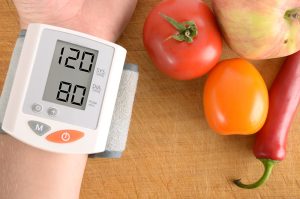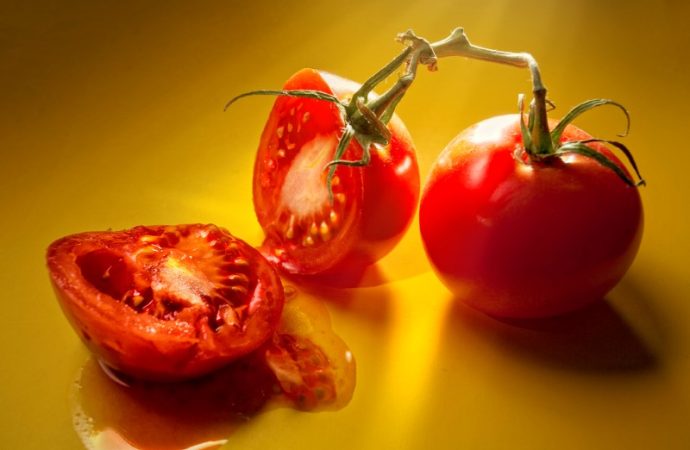Introduction In the quest for natural solutions to health challenges, a recent study has shed light on the potential benefits of incorporating more tomatoes into our daily diets. Beyond being a flavorful addition to meals, tomatoes might play a crucial role in lowering the risk of high blood pressure, particularly in older individuals. This article
Introduction
In the quest for natural solutions to health challenges, a recent study has shed light on the potential benefits of incorporating more tomatoes into our daily diets. Beyond being a flavorful addition to meals, tomatoes might play a crucial role in lowering the risk of high blood pressure, particularly in older individuals. This article explores the key findings of the study and delves into the mechanisms by which tomatoes influence blood pressure, addressing aspects of preparation, potential concerns with medications, and practical ways to integrate tomatoes into our daily lives.
How Tomatoes Affect Blood Pressure
- Lycopene and Angiotensin 2: Lycopene in tomatoes reduces angiotensin-converting enzyme, preventing the synthesis of angiotensin 2, a compound that can narrow blood vessels.
- Potassium Regulation: Potassium in tomatoes helps balance sodium levels, regulating fluids and aiding in lower blood pressure.

Image by: yandex.com
Tomatoes: Nature’s Blood Pressure Allies
Tomato Components
Tomatoes boast two key components believed to contribute to their blood pressure-lowering effect: lycopene and potassium. Lycopene, the most abundant carotenoid in tomatoes, is known for its ability to reduce angiotensin-converting enzyme and prevent the synthesis of angiotensin 2 – a compound that can narrow blood vessels. Additionally, potassium in tomatoes helps balance sodium levels, regulating fluids and aiding in maintaining lower blood pressure.
Study Insights
Participants in the study were categorized based on their daily tomato consumption, with varying levels ranging from less than 44 grams to more than 110 grams. The results showed a significant reduction in both systolic and diastolic blood pressure for individuals with higher tomato consumption, particularly those with stage 1 hypertension. This indicates the potential benefits of tomatoes for both prevention and management of high blood pressure.

Image by: yandex.com
Understanding the Tomato-Blood Pressure Relationship
Cooked vs. Raw Tomatoes
| Aspect | Cooked Tomatoes | Raw Tomatoes |
|---|---|---|
| Bioavailability of Nutrients | Possibly increased due to cooking, enhancing carotenoids and antioxidants. | May have lower bioavailability of certain nutrients compared to cooked tomatoes. |
| Lycopene Content | Lycopene more accessible, a key blood pressure-lowering compound. | Contains lycopene, but bioavailability might be slightly lower. |
| Potassium Retention | May retain potassium, contributing to blood pressure regulation. | Contains potassium, but some loss may occur during cooking. |
| Texture and Flavor | Altered texture and flavor, suitable for various cooked dishes. | Fresh, crisp texture with the characteristic tomato flavor. |
| Ease of Incorporation | Versatile for sauces, stews, and various cooked recipes. | Suitable for salads, sandwiches, and as a raw snack. |
| Potential Health Benefits | Enhanced nutrient absorption may contribute to improved blood pressure management. | Immediate intake of nutrients, providing antioxidant benefits. |

Image by: yandex.com
Tomatoes and ACE Inhibitors
- Potassium Concerns: ACE inhibitors may elevate potassium levels, but the abundance of sodium in modern diets suggests that tomato consumption may not pose significant issues.
- Maintaining Balance: Potassium helps counteract the effects of sodium, maintaining a healthy balance crucial for blood pressure regulation.
- Risks of Excessive Potassium: Excessive potassium intake may lead to hyperkalemia, but this is often associated with supplementation or specific medications.
Balancing Act with Potassium
Maintaining a balance between sodium and potassium is essential for cardiovascular health. While an excess of potassium could lead to hyperkalemia, a condition associated with irregular heartbeats and muscle weakness, this is more commonly associated with excessive supplementation or certain medications. Consulting with a physician is recommended to determine optimal potassium intake.
Embracing Tomatoes in Daily Diets
Nutritional Value and Versatility
Tomatoes, with their versatility and nutritional richness, effortlessly fit into diverse sustainable diets, such as the Mediterranean or plant-based approaches. From salads to sauces, the incorporation of tomatoes into daily meals not only promotes health but also aligns with environmental consciousness.

Image by: yandex.com
A Word of Caution
While tomatoes showcase promising health benefits, it’s crucial to view them as an integral part of a varied and healthy diet rather than a magic cure-all. Dr. Lamuela-Raventós reminds us that tomatoes should be seen as an important element contributing to overall health.
In conclusion, the regular consumption of tomatoes emerges as a promising and natural approach to managing and preventing high blood pressure. As with any dietary changes, individuals are advised to maintain a balanced diet, seek guidance from healthcare professionals, and consider their unique health circumstances. The tomato, with its vibrant color and rich flavor, may hold the key to a heart-healthy lifestyle.

















Leave a Comment
Your email address will not be published. Required fields are marked with *